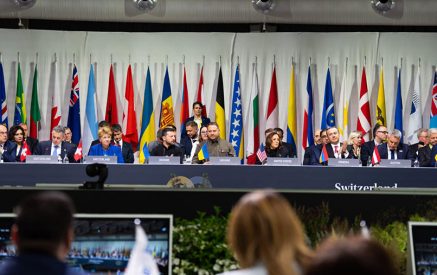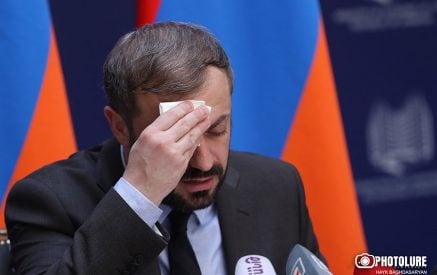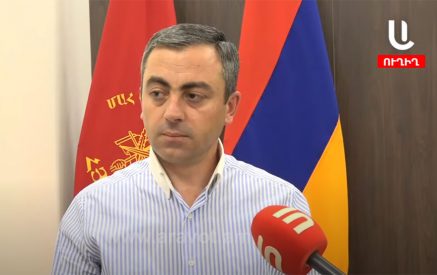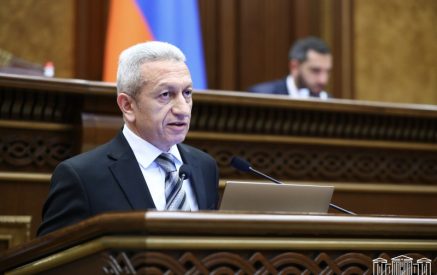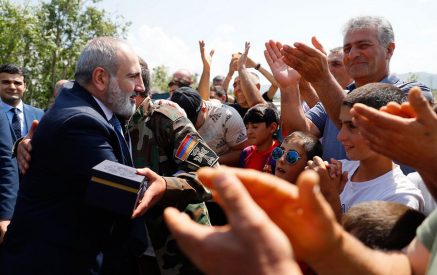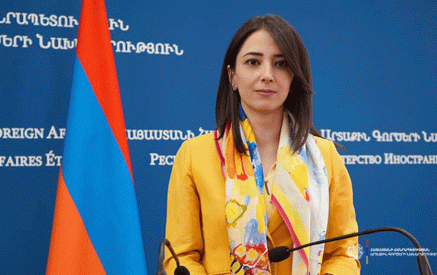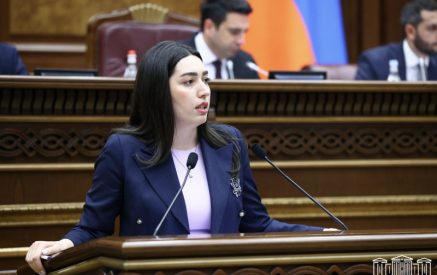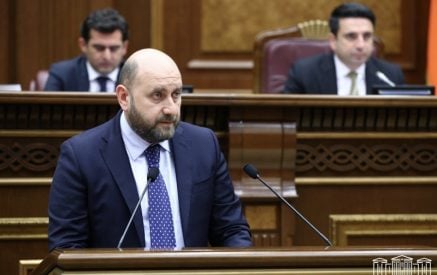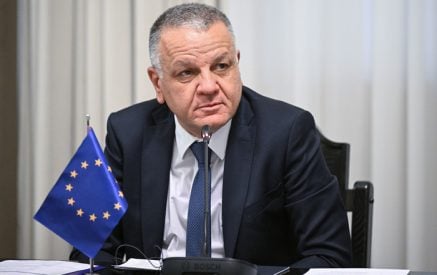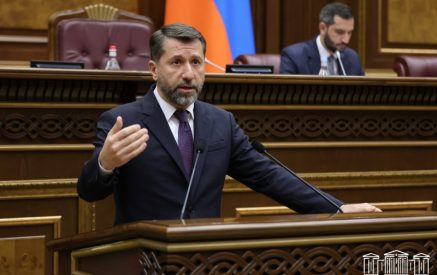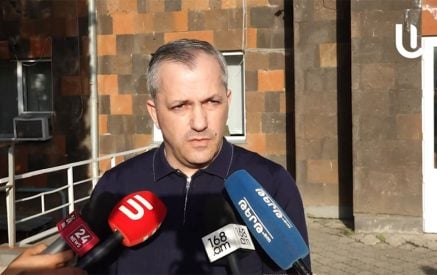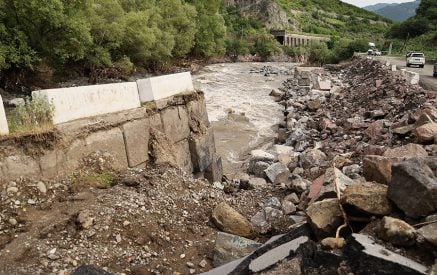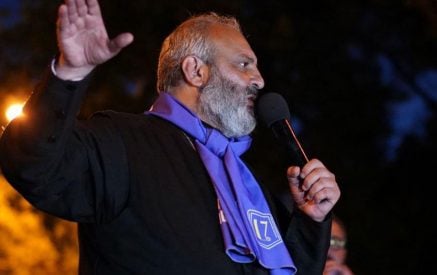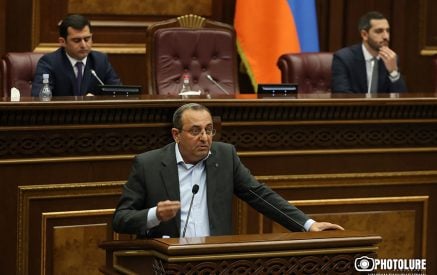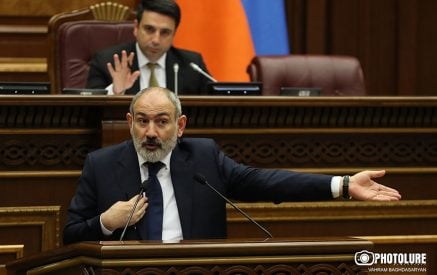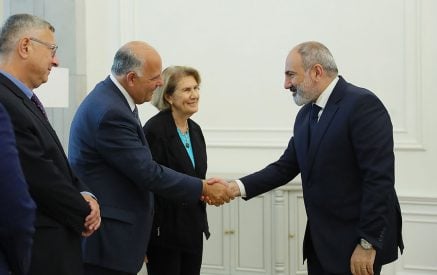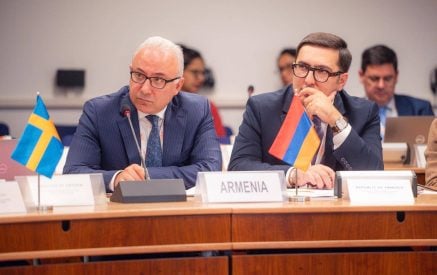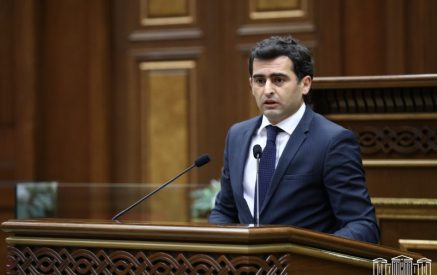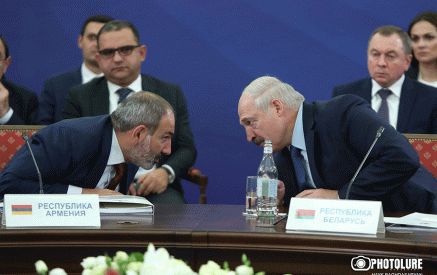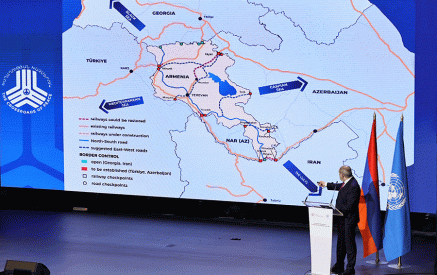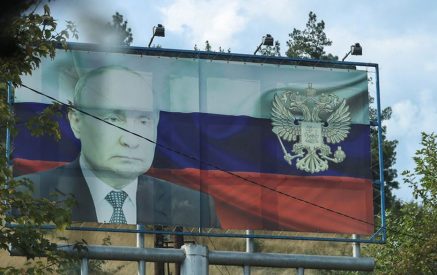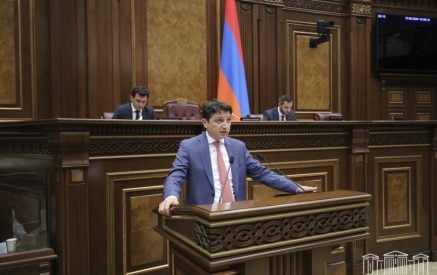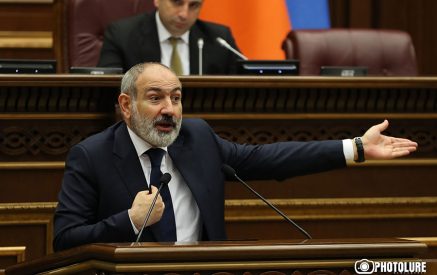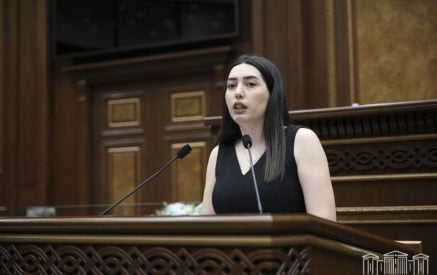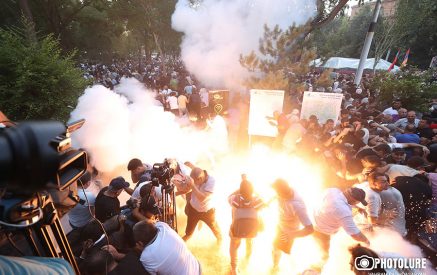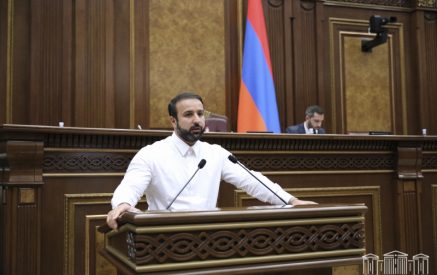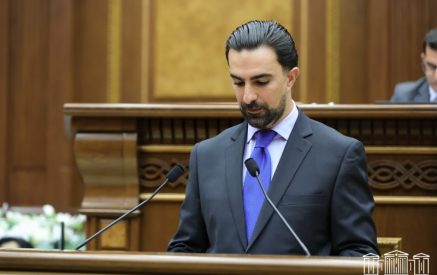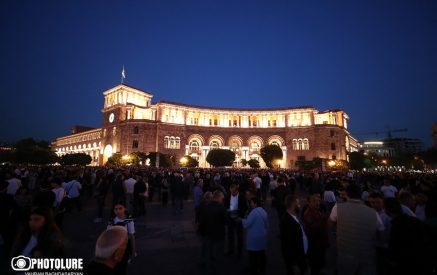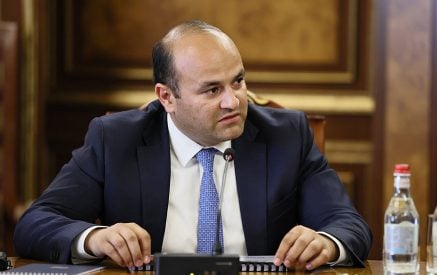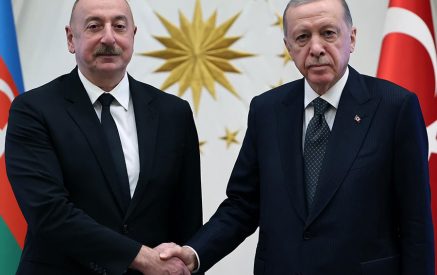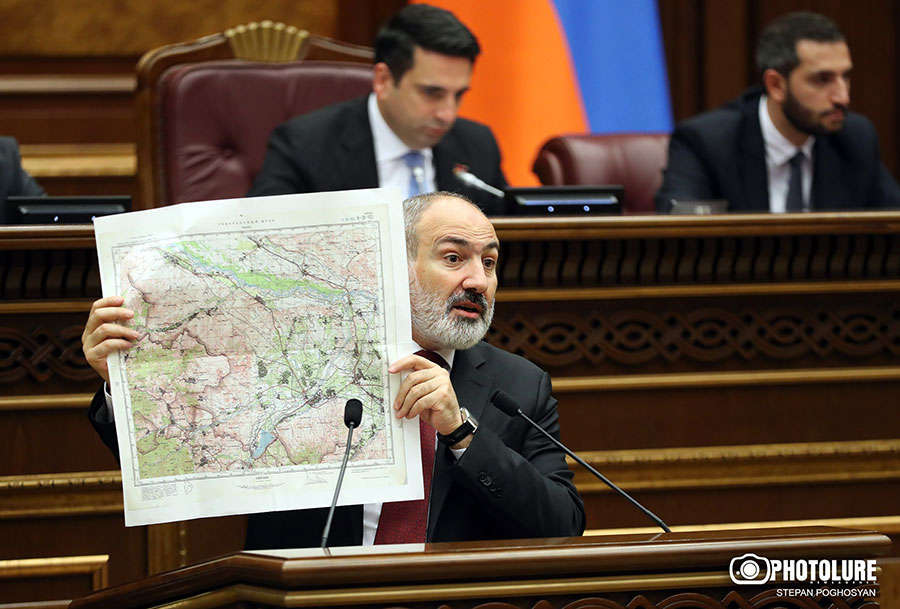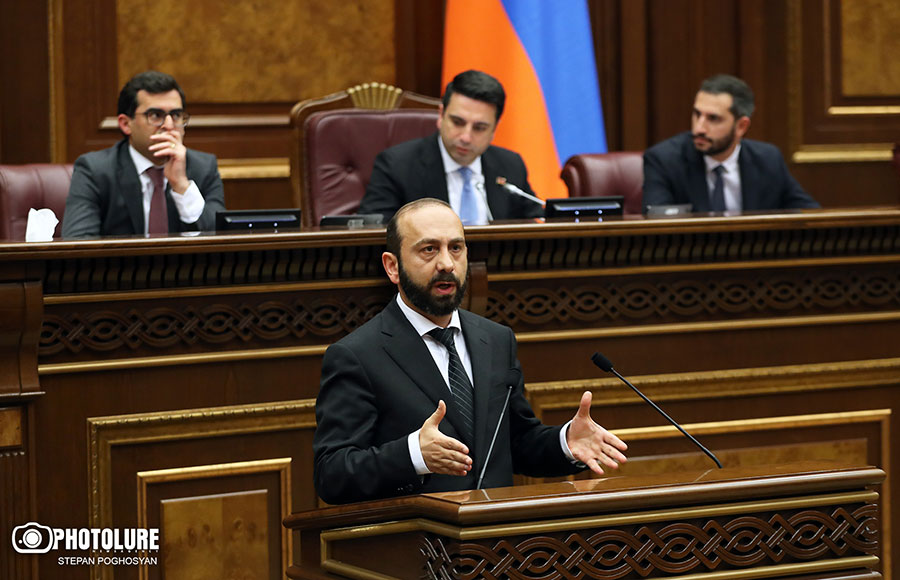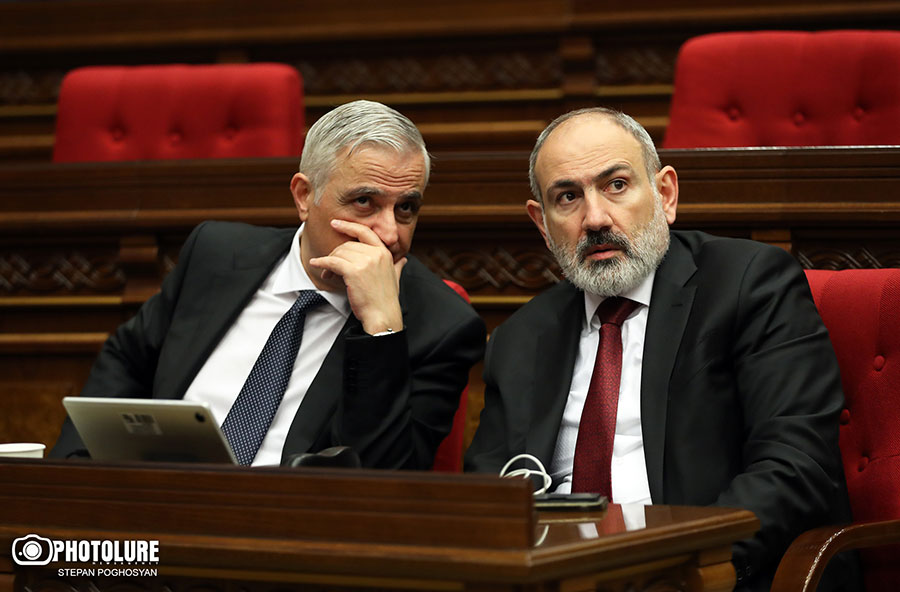Azerbaijan remains reluctant to recognize Armenia’s borders through a bilateral peace treaty, parliament speaker Alen Simonyan indicated on Wednesday.
The issue appears to have been the main sticking point in Armenian-Azerbaijani negotiations on the treaty. Yerevan wants it to uphold the 1991 Alma-Ata Declaration in which Armenia, Azerbaijan and other newly independent republics pledged to recognize each other’s Soviet-era territory. Foreign Minister Ararat Mirzoyan repeatedly complained in recent months that Baku objects to that.
“I must say that it is one of the topics discussed at this stage, but we have no agreement yet and discussions are going on,” Simonyan told reporters.
Read also
Mirzoyan and his Azerbaijani counterpart Jeyhun Bayramov met in Kazakhstan earlier this month for two days of fresh talks on the peace deal. The Armenian Foreign Ministry said afterwards that “there are still differences” between the two sides. It did not elaborate.
In an April 19 statement announcing Armenian territorial concessions to Baku, the sides said they have agreed to use the Alma-Ata Declaration as a basis for the delimitation of the Armenian-Azerbaijani border. Faced with angry protests against his decision to cede several border areas, Prime Minister Nikol Pashinyan said later in April that they thus “certified the recognition of each other’s territorial integrity.” The claim contrasted with Mirzoyan’s complaints about Azerbaijan’s stance.
Pashinyan continued to tout the April 19 deal as a significant achievement for Armenia when he spoke in the parliament on Wednesday. He described it as a blueprint for delineating other sections of the border.
“The agreement cannot fail go ahead,” he said. “I don’t see such a possibility. It can go ahead slowly, it can go a little faster, but the process must progress because the two sides have already signed [the document.]”
Pashinyan brandished 1976 Soviet military maps used as a legal basis for his land transfer to Azerbaijan. The latter has not agreed to use the maps for delimiting the entire border, highlighting its unwillingness to withdraw from Armenian territory seized in the early 1990s and in 2021-2022. Also, no specific maps are referenced in the Alma-Ata Declaration.
Tigran Grigorian, a Yerevan-based political analyst, believes that Baku’s strategy is to avoid clarity in the peace treaty in order to “leave more room for maneuver” and “get maximum dividends” from the border delimitation process.
“Namely, to delimit the border at sections beneficial for it and to obstruct or stop the process at other sections where they do not want to make concessions and withdraw from occupied Armenian territory,” Grigorian told RFE/RL’s Armenian Service.
Pashinyan’s political opponents similarly argue that Baku has no intention to reciprocate the unilateral Armenian concessions in any way. They say that the concessions will only encourage the Azerbaijani side to claim more Armenian territory.

